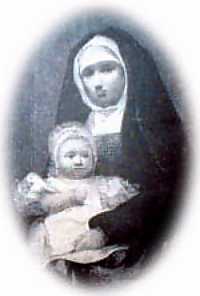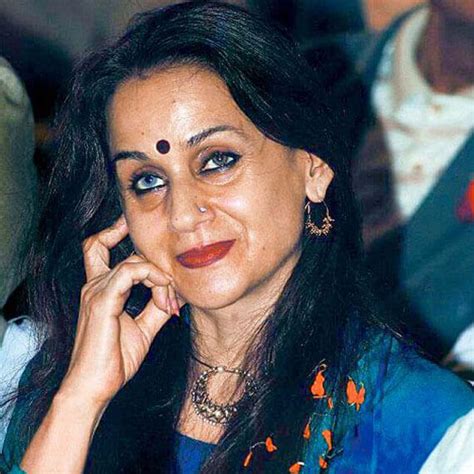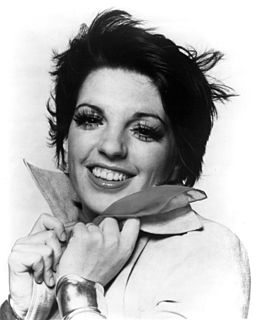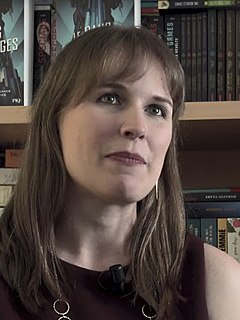A Quote by Maria Monk
Priests, she insisted, could not sin. It was a thing impossible. Everything that they did, and wished, was of course right. She hoped I would see the reasonableness and duty of the oaths I was to take, and be faithful to them.
Related Quotes
He began to trace a pattern on the table with the nail of his thumb. "She kept saying she wanted to keep things exactly the way they were, and that she wished she could stop everything from changing. She got really nervous, like, talking about the future. She once told me that she could see herself now, and she could also see the kind of life she wanted to have - kids, husband, suburbs, you know - but she couldn't figure out how to get from point A to point B.
...fact was she knew more about them than she knew about herself, having never had the map to discover what she was like. Could she sing? (Was it nice to hear when she did?) Was she pretty? Was she a good friend? Could she have been a loving mother? A faithful wife? Have I got a sister and does she favor me? If my mother knew me would she like me? (140)
He was making her feel small and absurdly petulant and, worse yet, she suspected he was right. She always suspected he was right. For a brief irrational moment, she wished she could walk away from him. Then she wished, more rationally, that she could love him without needing him. Need gave him power without his trying; need was the choicelessness she often felt around him.
When he held her that way, she felt so happy that it disturbed her. After he left, it would take her hours to fall asleep, and then when she woke up she would feel another onrush of agitated happiness, which was a lot like panic. She wished she could grab the happiness and mash it into a ball and hoard it and gloat over it, but she couldn't. It just ran around all over the place, disrupting everything.
...she merely wished to find a way out of the maze. She knew that she had become a burden to him: she took things too seriously, turning everything into a tragedy, and failed to grasp the lightness and amusing insignificance of physical love. How she wished she could learn lightness! She yearned for someone to help her out of her anachronistic shell.
He Sipped his coffee, watched the flames. "You gave me my life, you did," He insisted when Summerset made a protesting sound. "And I worked-in my fashion- to build this place. I asked you to tend it for me. You've never let me down. But I needed her. The one thing, the only thing that could make this place home." "She's not what I would have chosen for you" "Oh, that I know" "But she's right for you. The one for you." Despite, or maybe due to, her many flaws" "I imagine she thinks the same thing about you". Memory in Death, Roarke and Summerset
She (Judy Garland) was a friend of mine, a trying friend, but a friend. That is what I tell myself: She did everything she ever wanted to do. She never really denied herself anything for me. See, I say, she had a wonderful life; she did what she wanted to do. And I have no right to change her fulfillment into my misery. I'm on my own broom now.
Madame Ratignolle hoped that Robert would exercise extreme caution in dealing with the Mexicans, who, she considered, were a treacherous people, unscrupulous and revengeful. She trusted she did them no injustice in thus condemning them as a race. She had known personally but one Mexican, who made and sold excellent tamales, and whom she would have trusted implicitly, so soft-spoken was he. One day he was arrested for stabbing his wife. She never knew whether he had been hanged or not.
Granny bit her lip. She was never quite certain about children, thinking of them-when she thought about them at all-as coming somewhere between animals and people. She understood babies. You put milk in one end and kept the other as clean as possible. Adults were even easier, because they did the feeding and cleaning themselves. But in between was a world of experience that she had never really inquired about. As far as she was aware, you just tried to stop them catching anything fatal and hoped that it would all turn out all right.
But when did you see her, talk to me? When did you see her go into the cave? Why did you threaten to strike a spirit? You still don't understand, do you? You acknowledged her, Broud, she has beaten you. You did everything you could to her, you even cursed her. She's dead, and still she won. She was a woman, and she had more courage than you, Broud, more determination, more self-control. She was more man than you are. Ayla should have been the son of my mate.



































